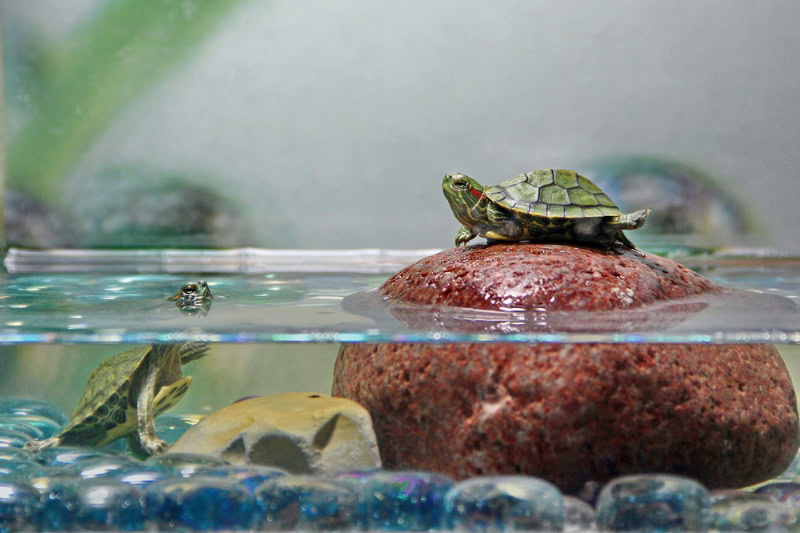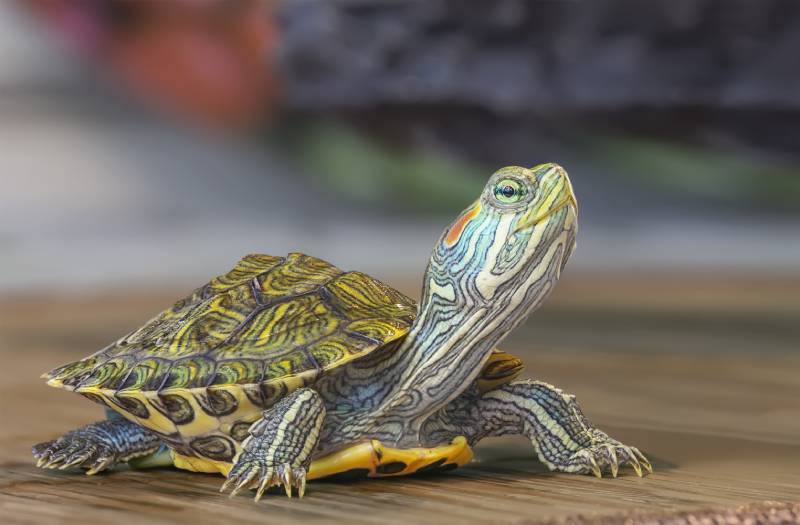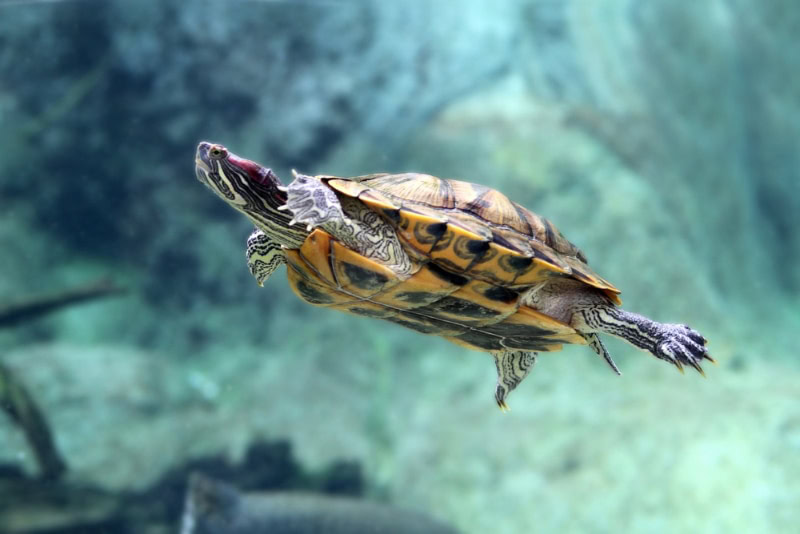VET APPROVED

The information is current and up-to-date in accordance with the latest veterinarian research.
Learn more »Click to Skip Ahead
Turtles are complex creatures, often surprising us with their unique characteristics. From their hardened shells to their slow-paced lifestyles, turtles are different from the typical pets we usually see.
But one question has been playing on the minds of turtle owners for a long time: Do turtles recognize their owners? Yes, they do, however, it requires some explanation. We will unravel the mystery and explore what science says.

Understanding the Turtle’s Intelligence
Turtles are more intelligent than most people give them credit for. They have shown the capability to remember their owners over time, recognize their names, and respond to the human voice and touch.
All these actions hint at their ability to understand and remember their surroundings, an essential characteristic of awareness.

How Turtles Show Recognition
Turtles are opportunistic foragers. As pets, they can quickly learn that a human approaching their enclosure is likely a sign that it’s mealtime. After all, turtles are hands-off pets and shouldn’t be handled unless absolutely necessary. Therefore, their enclosures are usually approached to feed them.
The ability to recognize humans as a food source is well documented in pet turtles. However, this recognition is considered a physiological necessity, not an emotional response to your presence.

Nurturing a Bond With Your Pet Turtle
The emotions of joy, contentment, optimism, eagerness, and play are not recognized in turtles 1. Furthermore, handling turtles does indeed elicit emotions of stress and fear in them, as evidenced by changes in their demeanor and heart rate.
In addition, all turtles carry an inherent risk of transferring Salmonella to humans. These bacteria can be harbored by an apparently healthy looking turtle. Therefore, turtles are not pets one would nurture a bond with.
The best way to nurture a bond with your pet is to respect their needs as a species. This involves understanding that, in order to minimize their stress, they should only be handled when absolutely necessary. The other way to nurture a turtle is by providing them with an appropriate enclosure and a species-appropriate diet.

Turtles & Their Emotions
Contrary to popular belief, turtles do not display many of the emotions people claim to attribute to other animals or their children.
Nevertheless, an experienced owner will recognize a turtle coming toward them for food or swimming over to greet them in anticipation of a meal, which is also quite a rewarding experience in itself.

Tips for Keeping Your Pet Turtle Healthy
Ensuring the health of your pet turtle extends beyond merely recognizing them. There are various factors involved in keeping a pet turtle healthy, from providing an optimal habitat to feeding them a balanced diet. Here’s a breakdown of these aspects, offering helpful tips on each front:
Creating a Comfortable Habitat
One of the first steps to keep your turtle happy is providing them with an environment that is clean, spacious, and closely mimics their natural habitat.
Ensure that the tank or enclosure for your turtle is large enough to allow them to move freely and comfortably. Depending on their species, they need space to swim, bask, and hide.
Regularly clean your turtle’s habitat to maintain hygiene. Turtle tanks can quickly become dirty due to leftover food and waste. Poor sanitation can lead to diseases and infections, so a clean environment is essential for a healthy turtle.
Create a basking area for your turtle, as this is essential for their health. Basking helps them regulate their body temperature and aids in digestion. You can create a basking area using a flat rock or a basking platform and an overhead light. Alternatively, large turtles can be housed in a secure outdoor enclosure with access to sunlight.
Just like humans, turtles also need some private space. Providing hiding spots where they can retreat and rest will make them feel safe and secure. Your turtle, if aquatic, should have enough water to swim in.

Balanced Diet for Healthy Turtles
The food you give your turtle can significantly affect their health. A balanced, species-appropriate diet is crucial for turtles.
While turtles can eat a broad range of foods, their needs vary greatly depending on their age, size, species, reproductive status, and the environment they are housed in. You should discuss your pet’s diet with your veterinarian throughout the various stages of their life.
Feed your turtle a reasonable quantity of food. Overfeeding can lead to obesity and other health issues, such as shell pyramiding.
Incorporate vitamin and calcium supplements into your turtle’s diet. These nutrients are vital for a turtle’s shell and overall health. Consult with a veterinarian to determine the right type and quantity of supplements for your specific pet.

Conclusion
So, do turtles recognize their owners? Yes, they do! Their display might not be as expressive as other pets, but turtles certainly have the capability to recognize and respond to their owners in their unique way.
So, if you are a proud turtle parent, know that your pet likely associates you to a food source. Enjoy the fascinating journey of turtle parenthood, understanding your pet’s unique behaviors, and growing with them.
Featured Image Credit: Kitch Bain, Shutterstock










